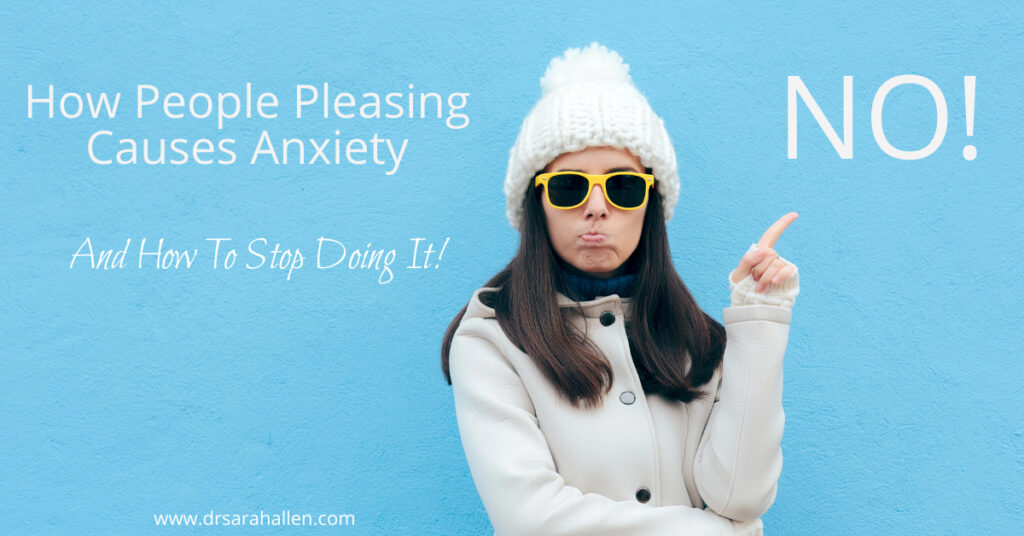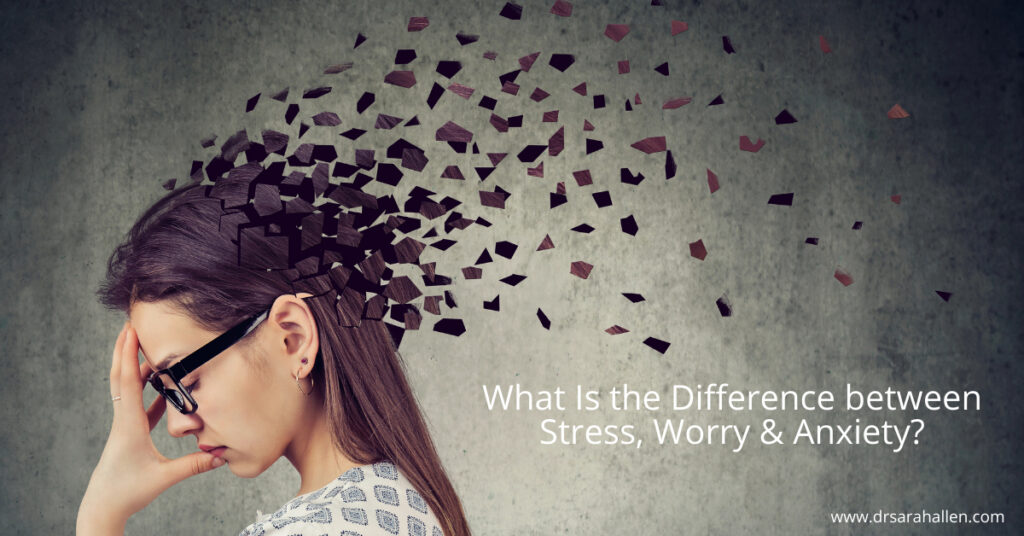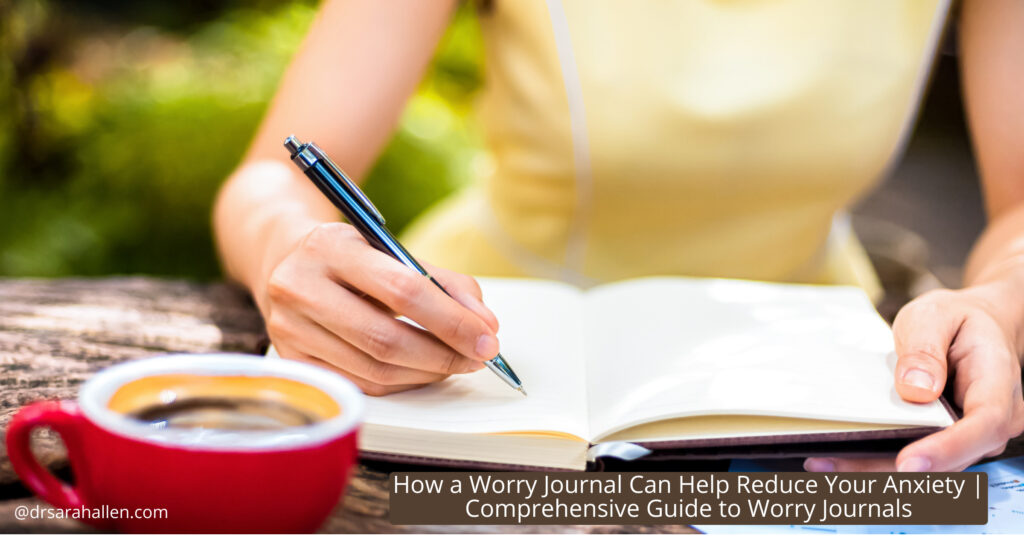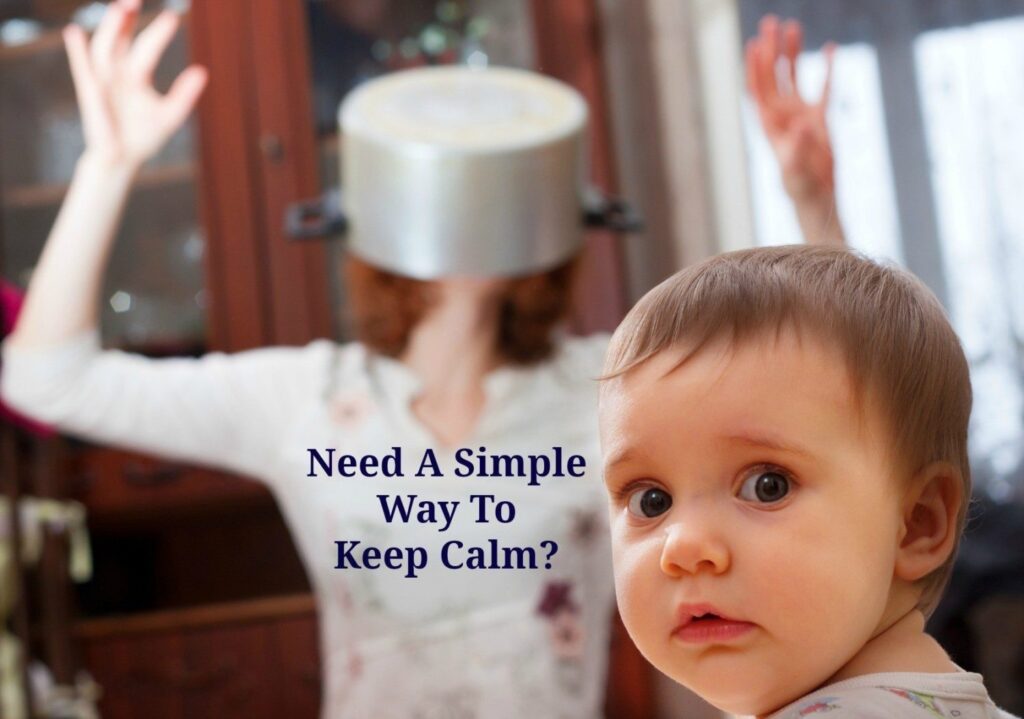
Anxiety, worry and stress are a part of everyday life. It can be helpful in spurring us on in to action, for example when we worry about a test, we study, or warn us that a difficult situation is ahead so we can prepare for it.
Anxiety becomes a disorder though when the symptoms become chronic and interfere with our daily lives and our ability to function the way we want to.
Anxiety is the number one problem that people come to see me about and about 18% of adults and 8% of teens experience symptoms that interfere with their life and happiness. Many do not reach out for help and continue to struggle on and feel less than satisfied with the way their life is. This is such a shame because anxiety is very treatable.
Everyone’s experience is different but here is a list of common emotional and physical symptoms that people who feel anxious report:
- I know that I worry much more than I should
- I have trouble controlling constant worries
- I am not able to relax
- I have a hard time concentrating
- I have trouble falling asleep or staying asleep
- I feel tired all the time
- I have headaches, muscle aches, stomach aches, or unexplained pains
- I am irritable and have mood swings
Although Symptoms are Similar, There are Different Types of Anxiety
It is important to get the bottom of exactly what is going on so treatment can be geared to what you need. If you’ve struggled with worry and fears for a long time, it is very likely that you are experiencing Generalized Anxiety Disorder. But what if your symptoms are relatively short-term? Some medical conditions and/or medications can actually cause anxiety or perhaps you have recently experienced a traumatic event or situation?
Although symptoms are similar, there are different types of anxiety. Which sounds most like your experience?
Generalized Anxiety Disorder (GAD) This is the most common form of anxiety and is when people have excessive anxiety and worry which occurs more days than not. In addition, symptoms of restlessness, fatigue, concentration problems, irritability, muscle tension and sleep disturbance may be present. Someone experiencing GAD finds it really difficult to control or regulate their worry.
Panic Disorder A panic attack is an intense fear or discomfort accompanied by physical symptoms such as sweating, trembling and chest pain. People’s thoughts are usually about fear of losing control and/or dying. A panic attack can happen with any of the anxiety disorders, but panic disorder itself is characterized by recurrent, unexpected panic attacks and persistent concerns about having additional panic attacks.
Social Phobia This is where people worry about social situations and have a fear of being seen negatively by others. This often leads to people avoiding social situations or if they have to go there is a lot of worry beforehand and often rumination about it afterwards.
Specific Phobia This is when anxiety is a persistent and excessive fear about an anticipated or actual encounter with a specific object or situation e.g. spiders. A phobic person often organizes their life around avoiding it.
Obsessive-Compulsive Disorder (OCD) A person with OCD has obsessions (which are persistent thoughts, images or impulses) and compulsions (which are behaviors done to reduce their anxiety). Having OCD is time-consuming and can really impact life activities. People with OCD recognize that their worries and compensating behaviors are excessive but cannot stop for fear of what will happen if they don’t do them. The most frequent compulsions involve washing and cleaning, counting, seeking assurances, checking and/or repeating actions.
Post-Traumatic Stress Disorder (PTSD) The anxiety in Post-Traumatic Stress Disorder is clearly associated with a traumatic event that the person experienced or witnessed and involved intense fear, horror or helplessness. In addition, there are recurrent, intrusive recollections of the events which are anxiety-provoking and distressing to the person. There may be avoidance of any situations associated with the original trauma and other anxiety-related symptoms such as hyper-vigilance or exaggerated startle response.
Pregnancy & Postpartum Anxiety This is when symptoms occur during pregnancy or up to a year after having a baby. Approximately 6% of pregnant women and 10% of postpartum women develop anxiety, sometimes alone, and sometimes in addition to depression.
All types of anxiety have two things in common. Firstly, it feels absolutely horrible to when you experience anxiety and your quality of life is really effected. Secondly, and very importantly, treatment can be very effective.
Through proven, research-based therapy methods and my 20 years of experience, I can quickly get to the root of the problem. Using a compassionate, problem-solving approach to identify and treat the issues that are causing you to feel overwhelmed and stressed, we work together to help you worry less and enjoy life more.
I put together a booklet with some strategies I am always giving to my clients to help them begin to feel less anxiety and to worry less.
I hope that you will find it helpful too.
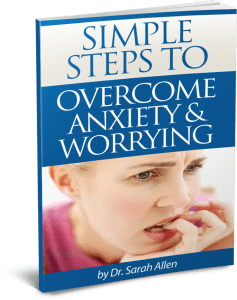
Add your first name and email address in the box below and you will be sent the steps to download your FREE book.
Please let me know if you have any questions after reading the booklet. Also, if you would like to read more, I have several blog posts on my blog about anxiety and other issues that can affect the way you feel.
In a supportive environment with a therapist who has over 20 years experience you can learn how to reduce worrying by:
- Learning a variety of relaxation and breathing strategies which can help you reduce your overall levels of stress and help you face anxiety-provoking situations.
- Learning how to distinguish between worries that require your attention and worries that are unnecessary.
- Learning skills to manage anxious thoughts and to tackle fears that may have been holding you back.While all your worries won’t disappear, you will be given strategies to manage them better and tools to reduce the impact they have on your life.
If you feel anxiety is standing in the way of you leading the life you want to, call me on 847 791-7722 or via the contact form.

If you have any questions, or would like to set up an appointment to work with me and learn how to reduce anxiety, please contact me at 847 791-7722 or on the form below.
If you would like to read more about me and my areas of specialty, please visit Dr. Sarah Allen Bio.
Dr. Allen’s professional licenses only allows her to work with clients who live in IL, FL & the UK and unfortunately does not allow her to give personalized advice via email to people who are not her clients.
Dr. Allen sees clients in person in her Northbrook, IL office or remotely via video or phone.

What Can I Read That Helps Me While I Am Waiting For My First Appointment With Sarah?
Download this free booklet to gain valuable insights and practical strategies for managing anxiety and worrying.









